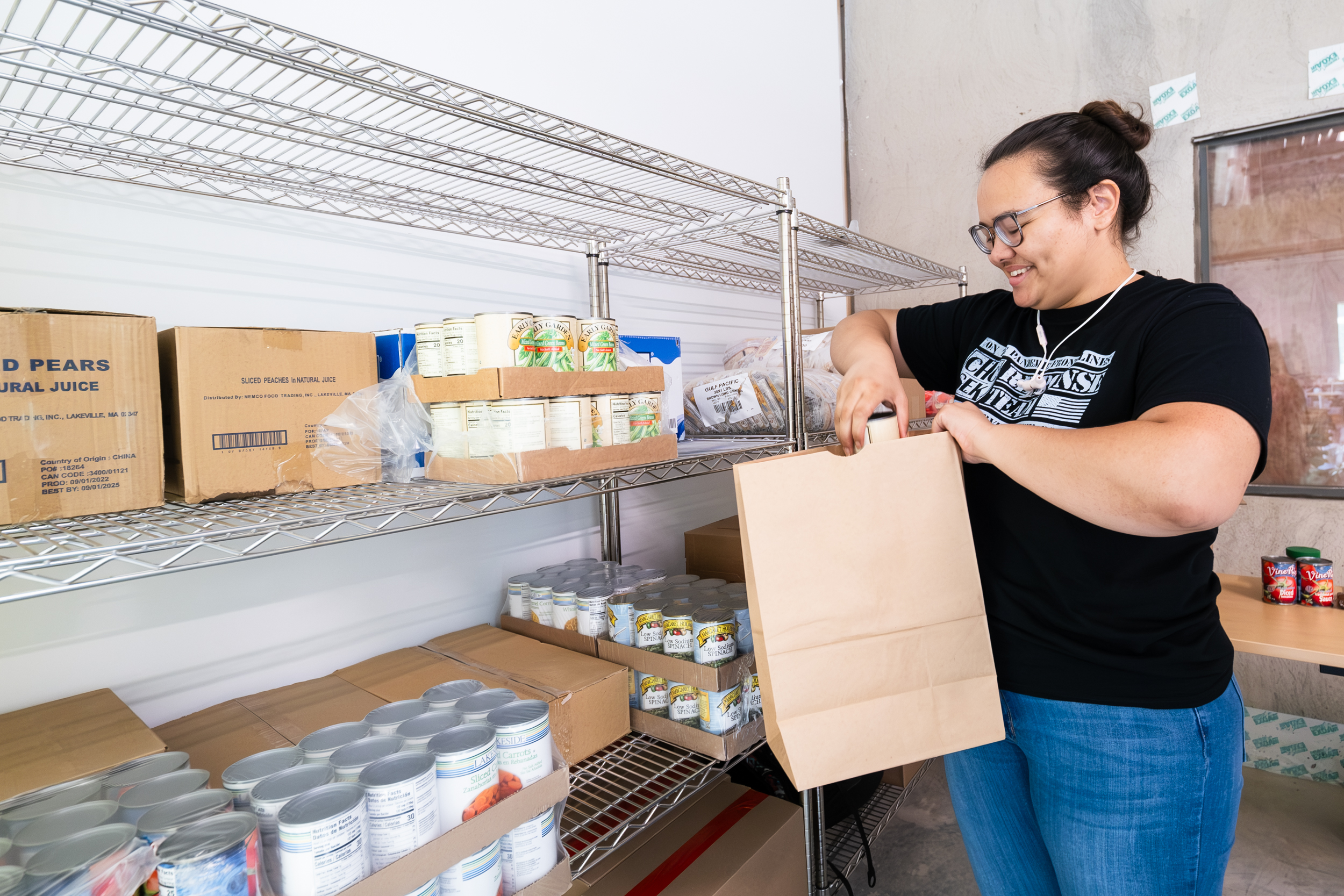Through the Sunflower Foundation’s Food Is Medicine initiative, CHC/SEK joins a cohort of statewide Federally Qualified Health Centers (FQHCs) to improve health outcomes for those living with diabetes.
The clinic began to pilot its Diabetes Grocery Prescription (DGRx) Program, which is led by Building Health Inc. (BHI), a subsidiary of CHC/SEK that is focused on improving health outcomes by addressing social determinants of health, including access to healthy and affordable food options. The program offers free, medically-tailored groceries for a patient with diabetes that also identifies as nutrition-insecure. During this 12-week period, participants regularly check in with a diabetic health coach, attend nutritional education opportunities and diabetic education classes, and meet with a registered dietitian.
Funding for this project was provided, in part, by the Sunflower Foundation: Health Care for Kansans, a Topeka-based philanthropic organization with the mission to serve as a catalyst for improving the health of Kansans.
Initial project planning activities included relationship building with CHC/SEK’s Wellness Department, its Diabetes Center of Excellence, and CHC/SEK Physician Dr. Casey Hudson, who will support the effort and identify the patient participants. The BHI team consulted with clinical staff and data reports and interviewed patients to design a program model informed by patient stories and experiences.
“The program’s primary goal is to demonstrate to health systems, insurance payers, and funders that incorporating healthy food and nutrition education as part of the diabetes treatment plan is a practical and cost-effective approach to improving health outcomes,” BHI Program Manager Audrey Ricks says. “The key objectives of the DGRx program are to encourage better eating habits by increasing the consumption of fruits and vegetables, improve health outcomes (such as reducing hemoglobin A1C levels), and enhance confidence in managing diabetes.”


